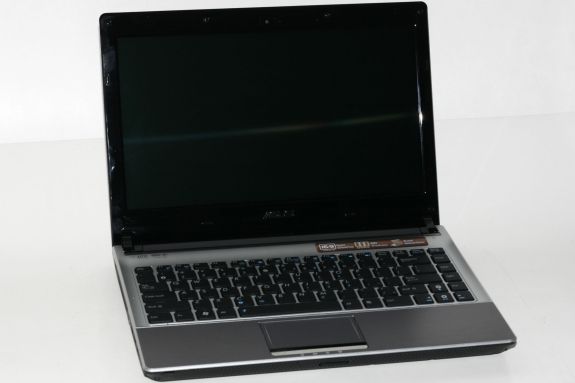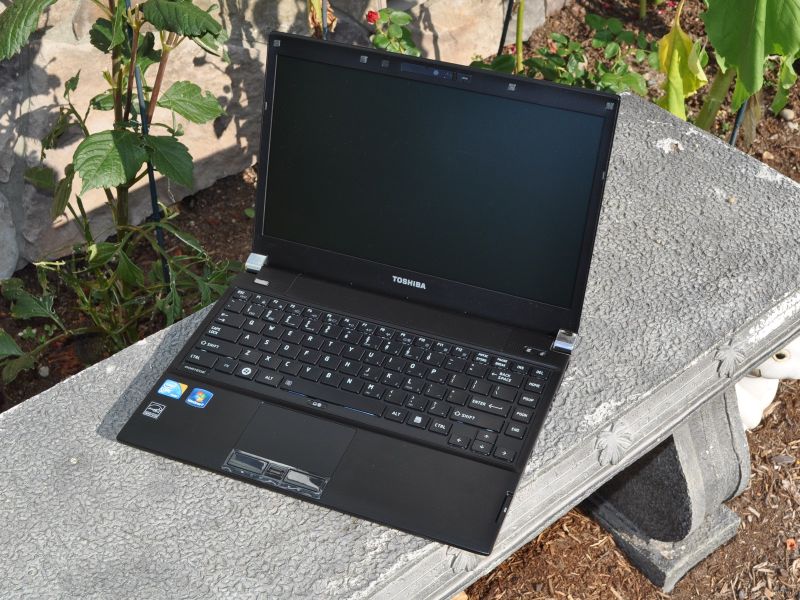Holiday Buyer's Guide: Notebooks
by Dustin Sklavos on November 15, 2010 9:00 PM EST- Posted in
- Laptops
- Guides
- Holiday 2010
Best Ultraportable: ASUS U30Jc/U35Jc ($779/$750)
The ASUS U30Jc wound up bringing home our editors' choice award when we first reviewed it, so it should come as no surprise that we'd be keen to recommend it here. It's getting a little long in the tooth, but the overall build quality and features are still worthy of recommending.

While the GeForce 310M graphics are virtually bereft of useful performance, we found the rest of the notebook to be plenty capable and able to produce exceptional battery life. In fact, it's this kind of performance and battery life that makes netbooks increasingly difficult to recommend: slightly bigger, much better machines are lasting longer on the battery.
The U35Jc variant is more or less the same machine as its slightly bigger brother, with the difference being that it eschews the integrated optical drive the U30Jc tags along. We're finding more and more these days that an optical drive just isn't the must-have kit it used to be: most operating systems can be installed via USB, and most gamers at this point are using Steam (or other similar options) to get their fix.
Either one of these notebooks is able to produce nearly eight hours of useful battery life, no mean feat for machines with dedicated graphics and mainstream (albeit low-end) Intel Core i3 processors. If they have one major flaw, it's that ASUS continues to hamstring their computers with mediocre screens, but we think the trade-off is absolutely worth it.
There's also the slightly rarefied U33Jc variant that includes USB 3.0, Intel's WiDi technology, and a bamboo shell. It's more expensive, but if you're gunning for style or think you might actually use WiDi (Vivek's in love with it), the U33Jc is an equally respectable choice.
Ultraportable Runner Up: Toshiba Portégé R700 ($945)
While Vivek was unimpressed with the blinged-out Protege R700 that Toshiba sent us for review, he submitted that the more affordable, trimmed down versions would be a lot more compelling and we certainly agree.
The Toshiba Protege brings the full line of Intel Core 2010 processors to bear in a remarkably small chassis—that's excellent mobile CPU performance in a three-pound laptop. It can't quite scrape the kinds of battery numbers we see from the ASUS U30/U33/U35 notebooks, and it doesn't have the questionable benefit of NVIDIA's low-powered dedicated graphics, but the R700 is lighter than the competition and more readily found in retail. It's also $100 more than the ASUS offerings above, so you win some and lose some.
Other Alternatives
Other alternatives certainly exist, including a lot of last-generation CULV laptops that can still get incredible battery life and cost $600 or less. We'd love to recommend the Sony VAIO Z-series as well, because it has some awesome features, but with prices starting at $1800 you need to be dedicated to the ultraportable lifestyle before making the move. Similarly, the VAIO Y-series weighs more and uses i3/i5 ULV processors, which frankly underwhelm—you can get almost the same battery life from full i3 processors running at twice the clock speed. If you can live with the "floating island" keyboard, you might even look at the Acer TimelineX laptops. Overall, though, we think the U/UL-series laptops from ASUS continue to offer the best ultraportable package without breaking the bank.











50 Comments
View All Comments
DBissett - Tuesday, November 16, 2010 - link
This model doesn't come up on Dell's website. How about a CURRENT model number?nirolf - Tuesday, November 16, 2010 - link
It's the XPS 15. I too had this problem, as even searching their website for "L501x" returned inconclusive results. Maybe a correction could be made in the article.plewis00 - Tuesday, November 16, 2010 - link
This is partly Dell's fault - you'll find their machines with names like 'new Studio 17' but the actual model number will be Studio 1745, etc.If you search for XPS 15 on the net, you inevitably end up with websites misnaming and listing the XPS M1530 15" notebook computer which was a 2008 model (albeit a very nice looking one! And, in my opinion, better looking than the new 2010 XPS 15).
Evil_Sheep - Tuesday, November 16, 2010 - link
-Interesting that only Dell and Asus got top PC recommendations. Actually I respect that: most websites have a manufactured diversity of brands in their recommended lists, probably to appease their advertisers. But also maybe it reflects that Anandtech seems to review a lot of Asus's and Dells. Where are the HP's, Lenovo's and Sony's?-I noticed you co-recommended the Asus U30Jc and U35Jc after you fairly slagged the U35 in your review and said the U30 was the preferred choice. Is this a subtle change of heart?
-The alternative recommendation in that category was the Toshiba Portege R700 but I don't think it makes sense to consider them as competitors since they aren't really in the same market. The R700 is in the "Macbook Air" category (funny how Apple has a way of creating its own market space): ultra-light and ultra-portable with power limitations, ideal as a 2nd computer for someone who wants more than a netbook, or as a primary computer for an undemanding user. The U30/35 on the other hand are clearly in the Macbook 13 space: a full-powered notebook that is still very portable. This is the so-called "thin and light" category, though I wish someone would come up with a name that is less awkward and ambiguous.
-There is a workstation recommendation...nothing wrong with that except it seems a bit unnecessary since there are only 3 self-described competitors in that space (HP, Dell, and Lenovo) and you can't go wrong with any of them. And the number of people looking for workstation recommendations are probably quite small (as you mentioned) since IT depts often procure them, and in addition few need those capabilities in the first place.
-No DTR/17" multimedia recommendation? Seems like an important category.
Not to be overly critical. I like the picks and it's a good overview generally.
Powerlurker - Tuesday, November 16, 2010 - link
HP is widely regarded as pretty much the bottom of the barrel reliabilitywise.Dug - Tuesday, November 16, 2010 - link
I think the MSi GX640 or 660 series should be at the top for gaming.It is fairly lightweight compared to others and has an ATi 5870 or 5850.
I personally like the 640 because of the 1680x1050 resolution and i5 processor.
JarredWalton - Tuesday, November 16, 2010 - link
Having tested the GX640, the keyboard is one of the worst I've personally encountered... almost to the point where I'd prefer the Acer keyboard. It just feels all around horrible when you consider the cost of the laptop, and it should be trivial to change it out, since just about anything would be an improvement. I can't comment personally on the GX660 or GX740 though, so perhaps they're better.Jeff7181 - Wednesday, November 17, 2010 - link
I love Lenovo ThinkPads... it's going to be a tough sell to get me to buy a different brand when I upgrade. I can't believe none even made it as a runner up or alternative. My R61 is great... has the power and memory run several virtual machines for my studies, can do media encoding and light gaming and barely gets warm to the touch while staying quiet. AND it gets 4-5 hours of battery life on the battery that came with it in Feb. of '08.MrMist - Wednesday, November 17, 2010 - link
I think the Asus 1018P with the N550 CPU is an interesting ultraportable, and it would be interesting to see it compared with the other alternatives here.erwos - Wednesday, November 17, 2010 - link
You do realize that the 1015PN does not have Optimus out of the box, right Jared?